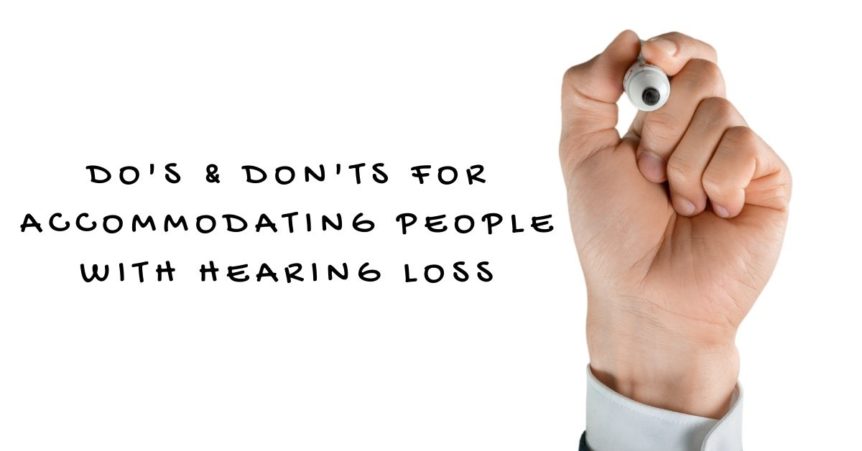If you’re reading this, it’s likely that your partner or loved one is suffering from an amount of hearing loss that is noticeably affecting their day-to-day life. Perhaps they don’t realize yet that they have a problem. You might feel stuck in a situation in which you want the best for them, but they’re denying there’s a problem, and this is putting extra stress on you. To be sure, the situation is not tenable, but it can be difficult for us to admit that we are having problems hearing.
For many, hearing loss is an unwelcome and unpleasant sign of aging. We’ve all known people who suffered hearing loss as they aged, and many of them may have continued having difficulty even after getting hearing aids. The hearing aids of the past were nothing like the ones available today, which can return hearing ability to almost normal and are tailorable to a specific person’s needs.
While your loved one may be resistant to getting hearing aids, there are a few things you can do, as well as a few you should avoid, to get your loved one to pursue a hearing test and get on track to restoring their ability to hear effectively.
Don’t Be Their Ears
If you’re at a restaurant and your loved one can’t hear the wait-person list the specials, you might be tempted to repeat the list for them. That puts you in the position of being their ears for them, giving you an unwanted responsibility while they might be able to continue to deny that there’s a problem. This can eventually lead to a narrowing of their world, where they only hear what you say back into their ears for them. Your loved one should interact directly with the people they cross paths with. If that is difficult for them because of hearing loss, they should get hearing aids, not rely on you to hear for them.
Don’t Get Emotional
If your loved one is resistant to getting hearing aids, becoming angry or showing frustration might make them dig in their heels even further. When they are struggling to hear, you don’t want to insert yourself and your frustration into the situation. Let your loved one see for themselves that they are in need of hearing aids, rather than making it an “I told you so” situation.
To be sure, spending a lot of time with someone who can’t hear you or the things happening around them is frustrating. But remember that it is frustrating for them as well. If they are resisting addressing the problem, getting angry at them won’t help.
Point to Specific Incidents
When you discuss the possibility of hearing aids, you should bring up problems they’ve had, like, “Remember the other night at the movies when you had trouble hearing the dialogue?” If you had become angry in that situation, bringing it up now would become a struggle about assigning blame, rather than a dispassionate conversation about the need to get hearing aids. So, remember to keep cool even when you are feeling frustrated, and when you address the issue of hearing aids you can bring up these moments without reminding your loved one of an emotionally negative situation.
Stay calm when bringing up these incidents, as well, and be sure to ask them about their own experience. Let them explain to you how they felt, rather than telling them how they made you feel. Ultimately, getting hearing aids has to be their own decision, so help them arrive at it but don’t badger them into it.
Research Current Options for Hearing Aids
Don’t do this in secret, but try to get them involved in the process of researching hearing aids. The technology has come a long way and is still evolving. Hearing aids now have Bluetooth connectivity for listening to music or connecting to the telephone. They don’t simply make everything louder but can be tailored for different situations, like increasing the volume of human speech while not boosting background noise. They can integrate with technology at museums or theaters to make attending lectures or performances more enjoyable.
Besides the improvements in actual audio technology, modern hearing aids are far more aesthetically pleasing than hearing aids of the past. Now sleek and sophisticated, modern hearing aids are often so small that they are invisible! Contact us to learn more about the options available to you.

